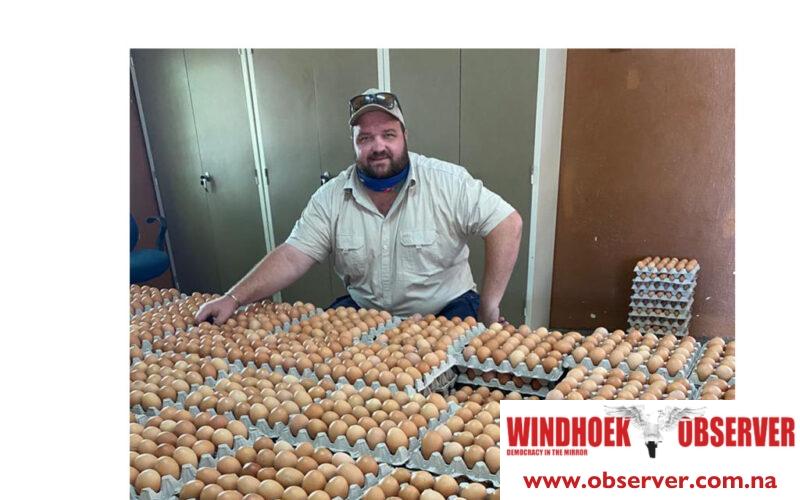This week Rene Werner, chairman of Poultry Producer Association (PPA) talks about the current bird flu outbreak in South Africa and its possible impact on Namibia since Namibia has banned imports from its southern neighbor.
South Africa is currently experiencing an outbreak of the Highly Pathogenic Avian Influenza (HPAI) in commercial poultry.
Werner pointed out that although closure of the border is not a new thing, the current closure is bad for South Africa because it has affected production farms, breeders and hatcheries, which could result in a longer recovery time for South Africa.
Since 2017, when South Africa had its first bird flu outbreak, borders are closed almost every year for a duration between three to five months.
Observer Money (OM): The Poultry Producers Association (PPA) has predicted a tough two months ahead as a government ban on poultry imports from South Africa comes into force?
Rene Werner (RW): The PPA supports the decision of the government to close the borders, it is a small price to pay compared to what will happen when we get the disease, and it destroys an entire industry, meaning jobs will be lost and dependents affected as a result.
(OM): How will this affect the prices of poultry products?
(RW): For now, there might not be an immediate increase in the retail prices, but if South Africa does not remedy the situation soon, traders might have to find alternative markets which could be costly and therefore prompt price increases. We definitely see an increase in the informal market though.
OM: What products are likely to be in short supply as a result of the shortage?
(RW): Eggs are one product where we can say we produce enough to supply the demand of the country. We will just have to source new suppliers for day old chicks which, we are busy with in Europe or Zambia. On the meat side we produce about 70% locally, the shortfall will be imported also from Europe or other countries which are AI free.
OM: What alternative markets are you members looking at to replace South African markets?
(RW): Europe, Zambia, Zimbabwe or America and South America.
(OM): What is Namibia doing to avoid the disease outbreak in South Africa landing in Namibia?
(RW): Closure of the border was the most important step. Otherwise each farmer must increase their already tight Biosecurity. The Directorate of Veterinary Services (DVS) has been working on a contingency plan, stating what must happen when a farm is infected, and PPA hopes that DVS will finalize the contingency plan. Also in Namibia the producers will not receive any help from Government (as there is no money) once they get the disease. Once the disease is detected on your farm you must destroy all chicken immediately and you are not allowed to continue farming for more than three months, until no AI is detected in various test. In other words, you as farmer has to start from zero with most probably a heap of outstanding bills to pay.
(OM): Can you give us statistics on poultry production in Namibia, how many birds and eggs do we produce annually?
(RW) Namibian egg farmers produce annually around 16 million eggs while broiler farmers produce about 34 000 tons of poultry meat a year.
(OM): How many eggs and birds are imported annually?
(RW): eggs are 100% produced locally, at the moment we don’t see imported eggs in the market. There is a lot of meat imports legal and illegal so it is not 100% known how much is imported. That should change in the future though as the poultry industry is now included in the new livestock and livestock products part of the Namibian Meat Board, which makes it a controlled product.
(OM) At one time, the PPA was complaining about cheap egg imports from Zambia, how was this resolved?
(RW): Yes, it almost brought the industry to its knees, but the work done between the PPA and the different government ministries, we were able to remedy the situation by enforcing border controls.




